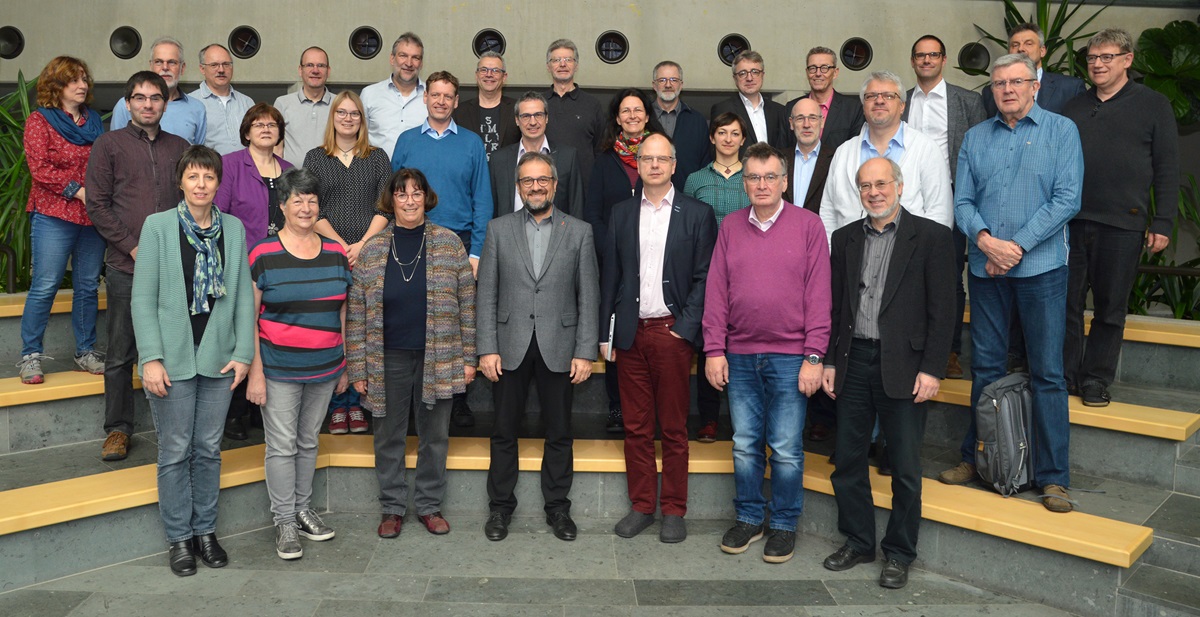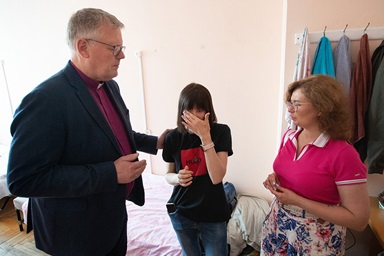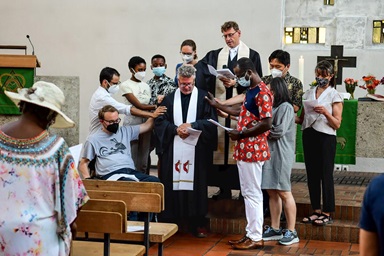Stipulations in the Traditional Plan approved by General Conference 2019 are unacceptable, said the executive committee of The United Methodist Church in Germany, and the church in Germany will not impose the stricter penalties laid out in the plan.
The committee is also forming a roundtable to search for ways to preserve unity.
On the final day of the special session of General Conference in St. Louis, delegates voted to adopt the Traditional Plan, which reinforces the church’s bans on same-gender unions and “self-avowed practicing” gay clergy. It also boosts penalties and accountability for transgressions of those bans.
“Regardless of our own content-related convictions, we have reached the unanimous opinion that the stipulations of the Traditional Plan are not acceptable for our church in Germany,” the group said in a statement released March 9. “The Germany (United Methodist Church) will therefore not follow the chosen way of controlling people in their disposition and imposing stricter penalties.”
The members of the German church’s executive committee emphasized that while democratic decisions must be respected, the far-reaching consequences in this case would not allow the adoption and execution of the decision by the United Methodist bodies in Germany.
The group made the unanimous decision during its regular spring session March 8-9, where General Conference’s actions dominated discussion.
“There is hardly any region on the (United Methodist) map of the world where, according to the decision of the General Conference, shards, break-ins and deep trenches did not emerge,” said Germany Area Bishop Harald Rückert in opening the session of the executive committee.
He shared information from numerous episcopal colleagues from northern, central and southern Europe, the United States, Africa and the Philippines, noting that from all regions, there was great sadness around the unity of the church.
Quoting letters he received, the bishop relayed to the executive committee the turmoil and emotional dismay that triggered the decision of people with very different attitudes in various German United Methodist churches.
The executive committee had to act on the legislation approved by General Conference, because the legislation itself requires bishops and annual conferences to certify that they would uphold, enforce and maintain Disciplinary standards on LGBTQ marriage and ordination.
The executive committee noted in its statement that there are large groups of opposing opinions on the issue of homosexuality, but it invited all of them to work together to preserve unity.
“We want to stay together as a church where people of differing opinions can live with each other. We don't want to let go of each other and we don't want to separate from each other, but we want to hold on to each other and to be there for each other. For we are convinced that Jesus wants to use us and our gifts jointly and together,” the statement said.
Read the statement
“But we can only stay together as a church if we manage to live in proximity and acknowledgement even without agreeing on important questions. We therefore want to be a church where people with homosexual sensibilities can be ordained and blessed in a marriage ceremony, and also where traditionally minded people can uphold their ideas and lifestyles.”
The roundtable approved by the committee will be formed in formed in April and is expected gather in May before the German annual conferences meet. It will include “people of different groups and directions” and Rückert will lead the group spiritually.
While central conferences — church regions outside the U.S. — can adapt parts of the Book of Discipline for their mission context, the executive committee statement did not address any plans to adapt the Traditional Plan legislation, which doesn’t take effect in Africa, Europe and the Philippines until 12 months after the next General Conference in May 2020. Instead, the committee wanted to lead the church toward unity.
The members of the executive committee pointed out that its decision came about after intensive deliberations. The district superintendents responsible for the nine districts of the United Methodist Church in Germany, one woman and eight men, as well as the other 21 voting and advisory members of the executive committee, spent several days “struggling intensively, emotionally and honestly with this resolution and all its consequences.”
The statement noted that if this path succeeds, it could be “an important sign in an increasingly torn and divided society.”
Ruof is the communicator of The United Methodist church in Germany. News media contact: Vicki Brown at (615) 742-5470 or newsdesk@umcom.org. To read more United Methodist news, subscribe to the free Daily or Weekly Digests.
Like what you're reading? Support the ministry of UM News! Your support ensures the latest denominational news, dynamic stories and informative articles will continue to connect our global community. Make a tax-deductible donation at ResourceUMC.org/GiveUMCom.




